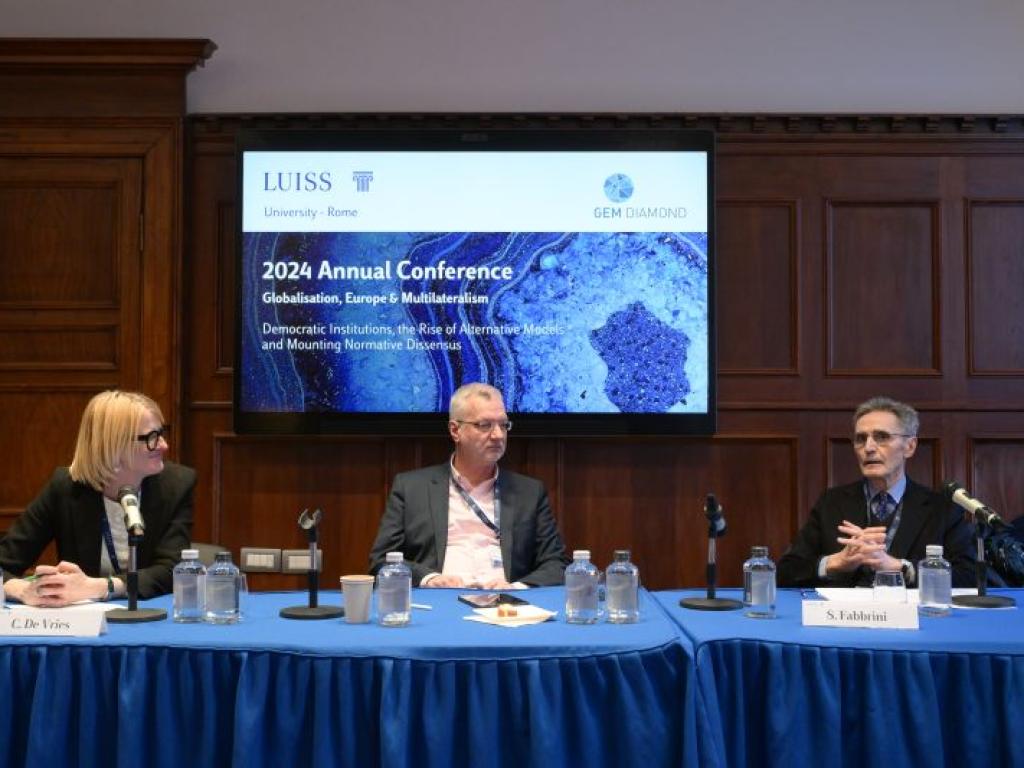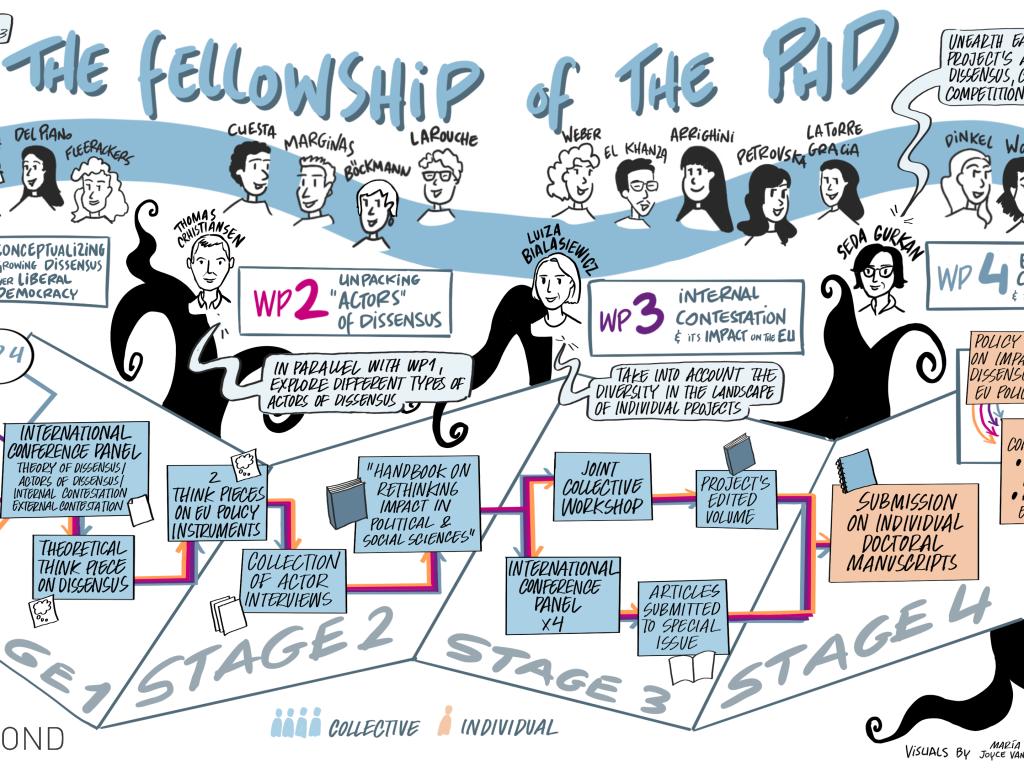Larissa Böckmann
GEM-DIAMOND doctoral fellow
ESR 7 – The politics of the untidy right: illiberal democracy as a contagious concept
With a personal research focus on the far right in a comparative perspective, I found the perfect match in my PhD project. Enthusiastic about political science, interdisciplinary research and academic cooperation.
The Politics of the untidy right: Illiberal democracy as a contagious concept
Supervisors
- Sarah de Lange
- Nathalie Brack
Research abstract
This dissertation addresses the topic of ideological illiberalism and its prevalence within the transnational European far-right, but also its “contagiousness” towards mainstream parties. In a first step, I develop a measurement for far-right illiberalism in the European Parliament (EP) and analyze the development of far-right discourse in the European Parliament (EP) between 1999 and 2019. The results indicate that illiberalism is not a new feature in far-right discourse, but has been a present and relevant characteristic since the 2000s. However, a stable and coherent trend has only evolved since 2009, when the far-right consolidated its presence in the EP. From 2017, after Brexit and the election of Trump, there is a marked increase in the use of illiberal discourse.
After assessing the temporal development of far-right illiberalism in the EP, I look into differences between far-right politicians in their use of illiberalism. Building on the literature on far-right heterogeneity, party behavior and the institutional procedures within the EP, I develop an explanatory framework to analyze different degrees of illiberalism that are tested through a quantitative content analysis and multilevel regression. The results show that degrees of illiberalism are influenced by both characteristics of the individual MEP and the political party.
In a third step, I will comparatively analyze the potential radicalization of mainstream parties.
Böckmann, L., Petrovska, M., Bialasiewicz, L., Lange, S.L. (2024). The Right to (Not) Appear: A Conversation on Institutional Obligations and Ethics of Care in Researching Illiberalism. Journal of Illiberalism Studies 4(1), 87-96, https://www.doi.org/10.53483/XCOZ3571.
Böckmann, L., Lange, S. L. de, Brack, N., & Rooduijn, M. (2025). Far‐Right Illiberalism in the European Parliament. Politics and Governance, 13(0). https://doi.org/10.17645/pag.9466
Lange, S. L. de, & Böckmann, L. (2025). Populists in Opposition: A Neglected Threat to Liberal Democracy? PS: Political Science & Politics, 58(1), 72–76. https://doi.org/10.1017/S1049096524000313
Presentation at Conferences (Selection):
-Politicologenetmaal 2023, Leuven
-ECPR General Conference 2023, Prague
-Società Italiana di Scienza Politica Conference 2023, Genua
-ECPR SG European Union Biennial Conference 2024, Lisbon
-ECPR General Conference 2024, Dublin
-Deutsche Vereinigung für Politikwissenschaft (DVPW) Congress 2024, Göttingen
-ECPR Joint Sessions 2025, Prague
-ECPR General conference 2025 (confirmed)
Training (Selection)
-ECPR Winter School 2023 (online) - Python Programming for Political Scientists
-Summer School for Women in Political Methodology 2023, University of Basel
-ECPR Summer School on Concepts and Methods for Research on Far-Right Politics 2024, C-REX Oslo
Service to the Community
Reviewing: Journal of European Integration, Journal of Contemporary European Politics, European Politics and Society
Grants and Awards
ALLBUS Junior Research Award for the best master thesis
-

The Right to (Not) Appear: A Conversation on Institutional Obligations and Ethics of Care in Researching Illiberalism
16 May 2024
GEM-DIAMOND fellows & supervisors jointly discuss institutional obligations and ethics of care in researching Illiberalism.
-

Delineating future dissensus: perspectives on the European elections
23 April 2024
Two fellows - Larissa Böckmann and Serafine Dinkel - join forces to reflect on the upcoming European elections
-

Birth of the GEM-DIAMOND Fellowship of the Ph.D.
1 October 2022
16 MSCA Fellows successfully selected following a gruelling selection process.



